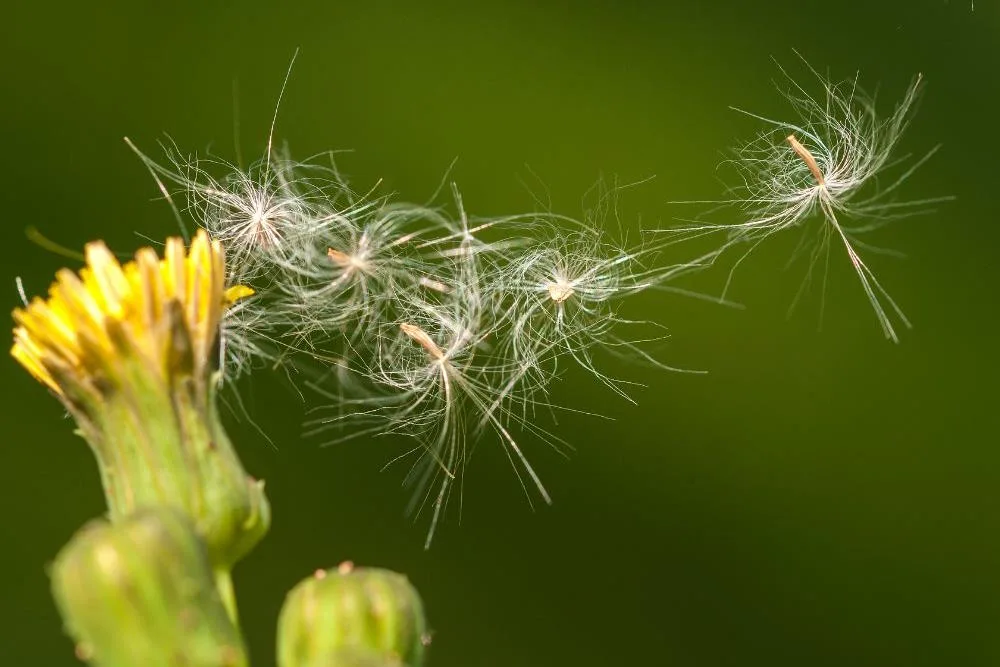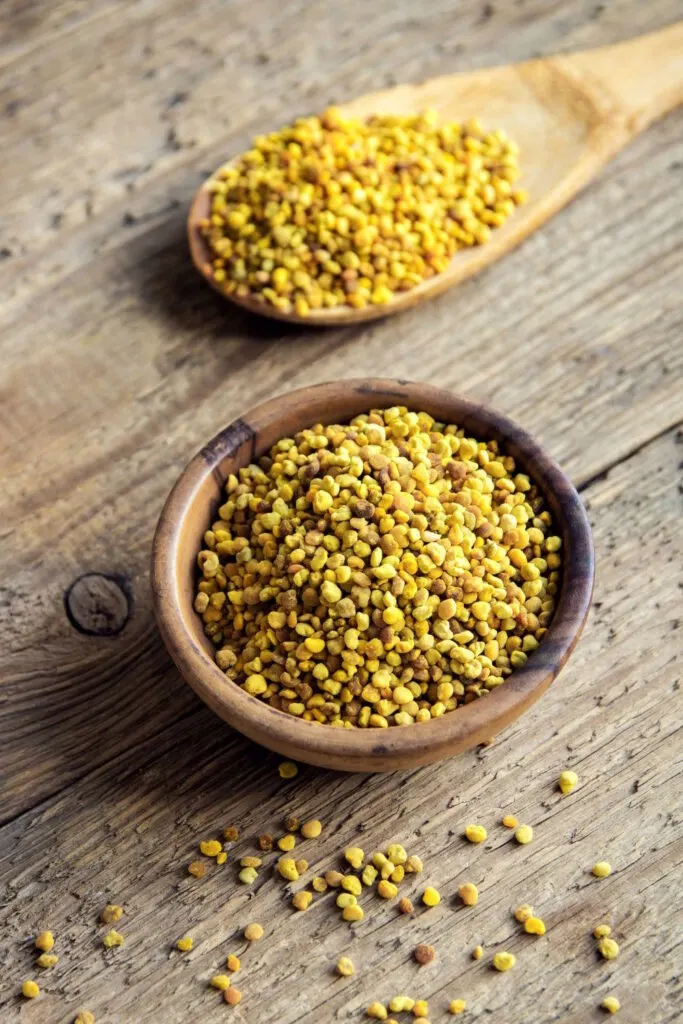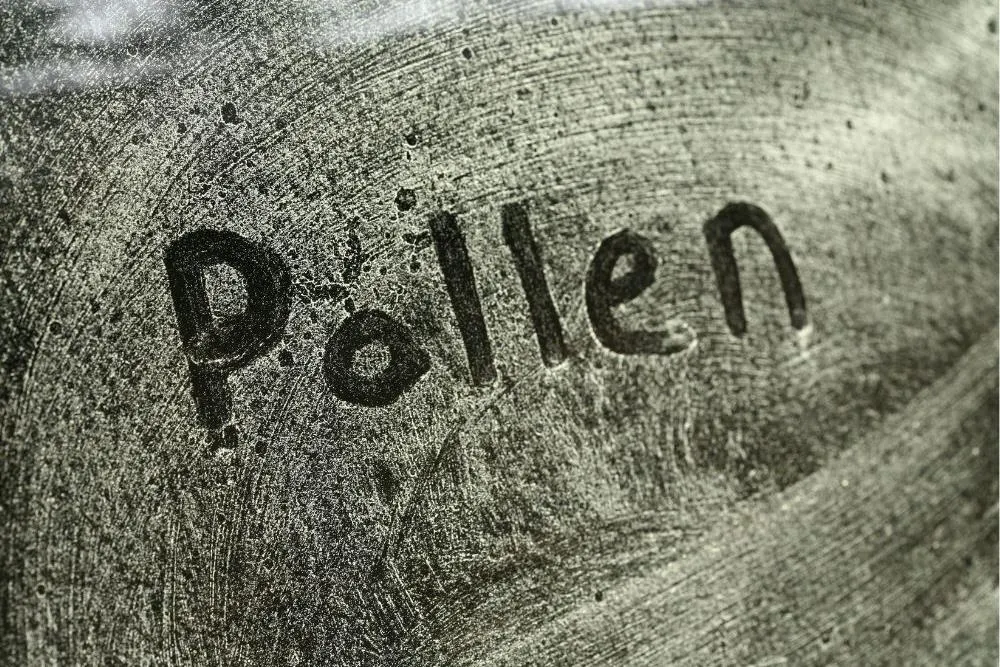Becoming a pollen collector can be a fascinating and rewarding career path for those interested in the natural world. Palynologists, or pollen researchers, study and analyze pollen and spore samples gathered from various environments.

This profession offers valuable insights into the genetic changes and distribution of plants, as well as the ecological history of certain areas. Moreover, pollen collectors may also get involved in collecting bee pollen or flower pollen for commercial purposes, which can be sold to various industries.
The journey to become a pollen collector begins with gaining a strong foundation in environmental science, biology, or a related field. This knowledge will help you understand the intricate relationships between plants, pollinators, and the ecosystems they inhabit. Develop a keen eye for detail and patience, as the process of collecting and analyzing pollen samples can be meticulous work. Additionally, building expertise in using specialized equipment for collecting pollen, as well as learning to identify different pollen types, will be crucial for your success in this field.
Once you’ve got a solid educational background, it’s essential to gain hands-on experience in collecting and analyzing pollen samples. Networking with professionals in the field, volunteering in research projects, or participating in initiatives like the Pollen Trackers campaign can provide invaluable opportunities to hone your skills and knowledge. With dedication and perseverance, you’ll be well on your way to a fulfilling career as a pollen collector.

The Importance of Pollen Collection
Pollen collection is a vital process for honey bees, as it provides essential nutrients needed for their survival and overall health of the bee colony. In this section, we’ll discuss the numerous benefits of pollen collection and its significance in honey bee colony health.
Nutrients and Benefits for Honey Bees
Pollen is a rich source of essential nutrients that honey bees require, including proteins, amino acids, fat, minerals, and vitamins. When bees collect pollen from plants, they bring it back to their hive and use it as a primary protein source, which is crucial for their growth, development, and overall health (source).
Pollen can be transformed into bee bread, a vital food source used by bees to feed their larvae and produce royal jelly. Royal jelly, in turn, is a crucial component in creating queen bees and maintaining a healthy and strong colony.
Some of the vital nutrients found in pollen include:
- Proteins
- Amino acids
- Fat
- Vitamins (such as B-complex vitamins and vitamin C)
- Minerals (such as potassium, magnesium, calcium, and phosphorus)
Role of Pollen in Bee Colony Health
Pollen plays a crucial role in maintaining a thriving and healthy bee colony. In addition to serving as a primary source of nutrients for honey bees, it also has a significant impact on their reproduction and overall hive wellbeing.
For instance, a lack of pollen or insufficient pollen quality can lead to decreased brood production, reduced foraging efficiency, and a smaller colony size. Adequate pollen collection is necessary for the development of the hypopharyngeal gland in newly emerged workers, which is vital for producing brood food (source).
By collecting pollen and creating bee bread, honey bees ensure that their larvae have a stable and nutrient-dense food source, essential for supporting their growth and development. This process ultimately aids in the sustained health and success of the colony, showcasing the utmost importance of pollen collection in the life of honey bees.

The Process of Pollen Collection
Bee Pollen Baskets and Collection
Bee pollen is collected by honeybees from flowers as they gather nectar. To accumulate pollen, bees have specialized structures called pollen baskets on their hind legs. As they move from flower to flower, pollen grains stick to the bee’s body, and the bees then groom it into their pollen baskets. Pollen is an essential food source for a bee colony, as it provides necessary protein, vitamins, and minerals.
Collecting pollen from bees can be done in several ways. Some beekeepers may use pollen collection methods during the winter, when bees are less active. This can still provide an adequate supply of pollen for the hive, even with the collection of some pollen for human consumption.
Pollen Traps and Beekeepers
For beekeepers looking to harvest pollen, pollen traps are a popular tool. Pollen traps are designed to collect pollen from returning forager bees as they enter the hive. The trap allows the bees to pass through, but knocks off some of the pollen from their pollen baskets in the process. The collected pollen then falls into a collection tray for easy retrieval.
Using a pollen trap, beekeepers can harvest a portion of the pollen without taking the entire supply needed for the hive’s wellbeing. It’s important to ensure the trap is not taking too much pollen, as this could negatively impact the colony’s health.
In summary, becoming a pollen collector involves understanding the natural process of bee pollen collection and utilizing pollen trapping techniques to harvest pollen responsibly. This fascinating craft contributes to the beekeeping industry, and allows for the sustainable collection of bee pollen, which offers numerous health benefits to humans.
Analyzing Pollen and Its Properties
Chemical Composition and Dietary Components
Pollen is a rich source of various dietary components, making it an important part of many ecosystems. The chemical composition of pollen consists of micronutrients, fatty acids, lipids, carbohydrates, and minerals.
-
Micronutrients: Pollen is packed with essential micronutrients such as vitamins and minerals, which are crucial for the healthy growth and development of organisms that consume it, like bees and their drones.
-
Fatty Acids: Pollen contains a variety of fatty acids that provide energy and serve as building blocks for cellular structures.
-
Lipids: In addition to fatty acids, pollen also contains lipids that are essential for the development of bee larvae and the functioning of their hypopharyngeal glands.
-
Carbohydrates: Pollen is a source of carbohydrates, which supply energy for various organisms, including bees.
-
Minerals: Minerals found in pollen contribute to the overall nutritional value of bee-collected pollen, supporting the wellbeing of the hive and sustaining the bees’ lives.
Palynology and Botanical Classification
Palynology is the scientific study of pollen and spores. Palynologists classify pollen into different botanical categories to better understand plant communities and ecosystems.
- Drones: The study of pollen analysis can help researchers identify the specific plant sources that drones visit. This information is useful for understanding the foraging behavior of bees and the pollen’s impact on the hive.
- Botanical Classification: By classifying pollen into different botanical categories, palynologists can identify the plant species in a given area, allowing them to understand the overall health of plant ecosystems and their roles in environmental and ecological contexts.
In summary, pollen analysis provides insights into the chemical composition and botanical classification of pollen, which is useful for understanding its dietary components and its role in ecology. By studying pollen through the lens of palynology, researchers can better comprehend how various organisms, including bees, interact with their environments, and contribute to the overall health of our planet.
The Life Cycle and Roles within a Honey Bee Colony
Nurse Bees and Pollen Consumption
Nurse bees are worker honey bees responsible for feeding and taking care of the larvae in the brood nest. These young bees consume a high amount of pollen to produce vital substances to nourish the developing bees. Pollen, an essential source of protein, lipids, vitamins, and minerals, plays a crucial role in maintaining the overall bee health.
During the first part of a nurse bee’s life, it focuses on feeding the larvae with a mixture of pollen, honey, and glandular secretions, collectively known as “bee bread.” This nutrition-rich food supports the growth and development of larvae, preparing them for their future roles within the colony.
Workers
Worker bees are the non-reproductive females and make up the majority of the honey bee colony. Their primary roles include foraging for nectar and pollen, constructing the honeycomb, and ventilating the hive. Workers also shift responsibilities depending on their age and the colony’s needs.
Young worker bees start as nurse bees and, as they grow older, undertake other important tasks, such as cleaning, building the comb, and guarding the hive. This enables the colony to function efficiently, and when they reach the end of their life cycle, they take on the role of foragers.
Drones and Pollen Collection
Drones are the male bees in a honey bee colony, and their main function is to mate with the queen. Unlike the worker bee, drones do not have the ability to collect pollen or nectar. However, drones still contribute to pollen collection indirectly due to their presence inside the hive or during mating flights.
Drones often walk near the brood nest where workers will deposit collected pollen. Additionally, when a drone leaves the hive to mate, it can potentially brush against flowers, causing pollen to disperse and facilitate pollination. While not their primary role, drones still assist in pollen collection within the colony.
By understanding the life cycle and roles within a honey bee colony, we can better appreciate the significance of each member’s duties and their impact on pollination and our ecosystem.
Commercial Aspects of Bee Pollen
Bee pollen is a highly nutritious substance collected from flowers by bees. It contains proteins, vitamins, minerals, and other essential nutrients that make it a popular dietary supplement. In this section, we will discuss the market potential of bee pollen and the factors impacting its quality and price.
Market Potential and Selling Bee Pollen
The market for bee pollen has been growing over the years due to its numerous health benefits and its use as a natural supplement. People are becoming more health-conscious and are interested in incorporating bee pollen into their diets.
To cater to this demand, pollen collectors can sell bee pollen to various channels, such as health food stores, online marketplaces, or directly to consumers at farmers’ markets. Some potential buyers might also include local restaurants and bakeries that wish to incorporate bee pollen into their recipes.
To successfully sell bee pollen, it is crucial to market the product effectively. This can be done by highlighting its health benefits, purity, and the sustainable methods used for collection. Demonstrating an understanding of bee biology and botany can also enhance the perceived value of the product.
Factors Impacting Pollen Quality and Price
Several factors can impact the quality and price of bee pollen. Some of these factors include:
Species of bees and plants: The nutritional content and taste of bee pollen can vary depending on the species of bees collecting the pollen and the type of plants they visit. Collectors may have to target specific bee species and plants to collect pollen with the desired characteristics.
Collection methods: The use of proper pollen collection methods is essential for preserving the quality of the pollen. Collector should use pollen traps to gently harvest pollen from bee hives without harming the bees or disrupting their work. After collection, it’s important to clean and dry the pollen to prevent mold and contamination.
Seasonality: The availability and diversity of plant pollen will change with the seasons. This can impact the flavor, color, and nutritional content of the collected pollen. Collectors may need to specify the seasonal source of their pollen to attract buyers interested in its specific characteristics.
Packing and storage: Proper packing and storage are crucial for maintaining the freshness and quality of bee pollen. It should be stored in air-tight containers and kept away from sunlight, heat, and moisture to preserve its nutritional value.
By understanding these factors and adopting appropriate collection and storage practices, pollen collectors can ensure a high-quality product that is appealing to potential buyers.
